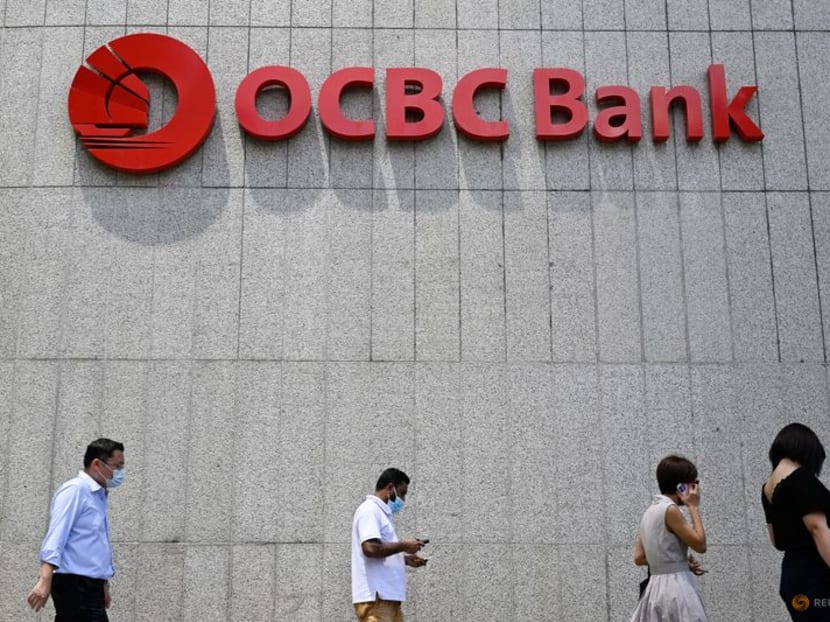OCBC phishing scam: Youth who helped overseas syndicates launder money given reformative training

- A judge told Leong Jun Xian that he had committed a series of serious offences
- Leong was one of seven young men charged with laundering ill-gotten money from the recent OCBC phishing scams
- He also got into fights and was part of a secret society
SINGAPORE — A 21-year-old man was sentenced to a minimum of 12 months' reformative training on Tuesday (July 5) after he laundered cash for unidentified fraudsters, who had pulled off the spate of high-profile phishing scams that hit OCBC bank between December last year and January.
Leong Jun Xian personally provided 12 bank accounts to the scammers and instructed runners to withdraw the ill-gotten proceeds from automated teller machines around the island.
The OCBC phishing scams affected almost 800 customers who lost S$12.8 million, court documents stated. The bank said previously that S$13.7 million was lost in the scam.
Leong was the first of seven Singaporean young men, aged 19 to 22, to plead guilty to his money laundering charges.
They had allegedly worked together to provide money-laundering services to various unknown persons believed to be linked to overseas syndicates, communicating through chat groups on messaging platform Telegram.
The others have yet to be dealt with for their suspected roles. The police said in February that they were also investigating six others.
When the seven young men were charged, an array of mobile devices, 112 bank cards and debit cards, SIM cards, S$2,760 in cash and two Rolex watches — worth S$35,600 in total — were seized.
Leong was found unsuitable for probation, a less severe punishment usually offered to first-time offenders aged between 16 and 21 and does not result in a criminal record.
Reformative training, which he now has to serve, is a regimented rehabilitation programme for offenders under 21 who commit relatively serious crimes.
Offenders are given a minimum period on the programme, subject to how they respond to the rehabilitation.
It takes place in a closed and structured environment, unlike probation where young offenders may continue with their education or employment while serving their sentences.
'CHANGE YOUR ATTITUDE'
On Tuesday, District Judge Kessler Soh told Leong that he had committed a "number of serious offences".
Leong had pleaded guilty to two counts of helping another person to retain the benefits of criminal conduct — a money-laundering offence under the Corruption, Drug Trafficking and Other Serious Crimes (Confiscation of Benefits) Act.
He also admitted to being a member of a locally linked organised criminal group, which falls under the Organised Crime Act, along with two unrelated rioting charges.
Ten other similar charges, including illegal gambling and being a member of a secret society, were taken into consideration for sentencing.
He was a "fighter" with the Sio Lun Tong secret society, court documents showed. He was involved in two fights as a member of the secret society in November 2020 and January last year.
In relation to the OCBC scams, Leong was promised a monthly salary of S$3,000, on top of an extra S$500 to S$800 for each bank account that he could provide.
District Judge Soh told him that because of the severity of his offences, deterrence also has to be a sentencing consideration apart from rehabilitation.
"I have looked at the reformative training report. Despite what your counsel said, there are many areas of your life that need to be improved — your attitude, your peers.
"You need to be more actively engaged in more constructive things and not be involved in crime," the judge added.
Leong's lawyer, Ms Audrey Koo from Populus Law Corporation, previously said that he is now waiting to enlist in National Service and plans to resume his studies at the Institute of Technical Education afterwards.
Ms Koo had asked for a shorter minimum period of six months' reformative training, saying that Leong's family is willing to support him and has seen improvements in his behaviour since he was charged.
Deputy Public Prosecutor Jason Chua objected to Ms Koo's argument that being sentenced to a long period of reformative training would hinder his ties with his family and "pro-social friends".
The prosecutor said: "The accused has multiple risk areas and risk factors, which require intervention, such as his continued association with anti-social peers and his indulgence in unconstructive activities."
Adult offenders convicted of money laundering can be jailed for up to 10 years, fined up to S$500,000, or both.
Those convicted of rioting can be jailed for up to seven years and caned.











